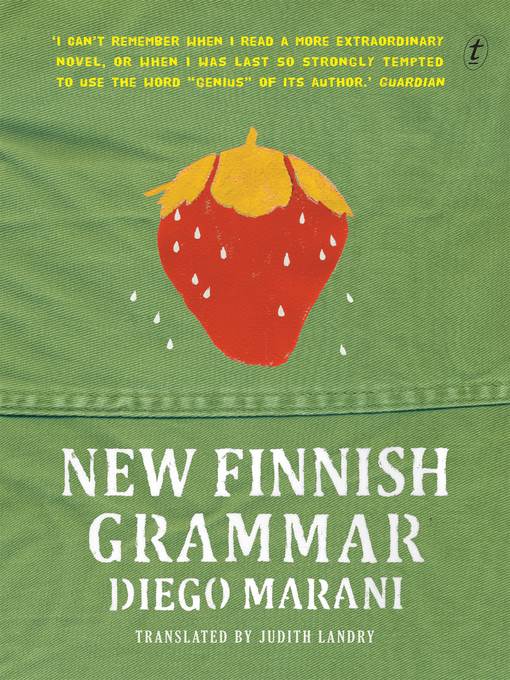Winner, Oxford-Weidenfeld Translation Prize, 2012.
Shortlisted, Independent Foreign Fiction Award and Best Translated Book Award, 2012.
Longlisted, European Book Prize, 2012.
One night at Trieste in September 1943 a seriously wounded soldier is found on the quay. With nothing to identify him, and having lost his memory and language, he is a mystery to the crew of the German ship that rescues him. The ship's doctor, a Finn, identifies the name embroidered on the man's jacket as Finnish. Taking him for a fellow countryman, he gradually teaches him to speak Finnish and eventually finds him a berth in an army hospital in Helsinki, from where he may be able to piece together his former life.
But the longer he spends in Helsinki, the less he feels at home; the more he learns of the Finnish language and rich history, the less familiar it seems; and by the time we learn his true identity, it's too late.
New Finnish Grammar is an unforgettable tale of one man's search for meaning and for identity amid the devastation of WW2.
Diego Marani was born in Ferrara in 1959. He works as a senior linguist for the European Union in Brussels. Every week he writes a column for a Swiss newspaper about current affairs in Europanto, a language he invented. He is the author of a collection of short stories in Europanto, Las Adventures des Inspector Cabillot, and five other novels, including The Last of the Vostyachs, to be published in Australia and New Zealand in early 2013.
textpublishing.com.au
'This is an extraordinary book, as good as Michael Ondaatje's The English Patient and with a similar mystery at its heart.' Spectator
'An entrancing, disturbing exploration of the limits of speech and self.' Independent
'Marani has created a staggering study of loss and an act of retrieval that is heroic.' Irish Times
'Beautifully written and translated, and beautifully original.' Times
'I can't remember when I read a more extraordinary novel, or when I was last so strongly tempted to use the word "genius" of its author.' Guardian


دیدگاه کاربران